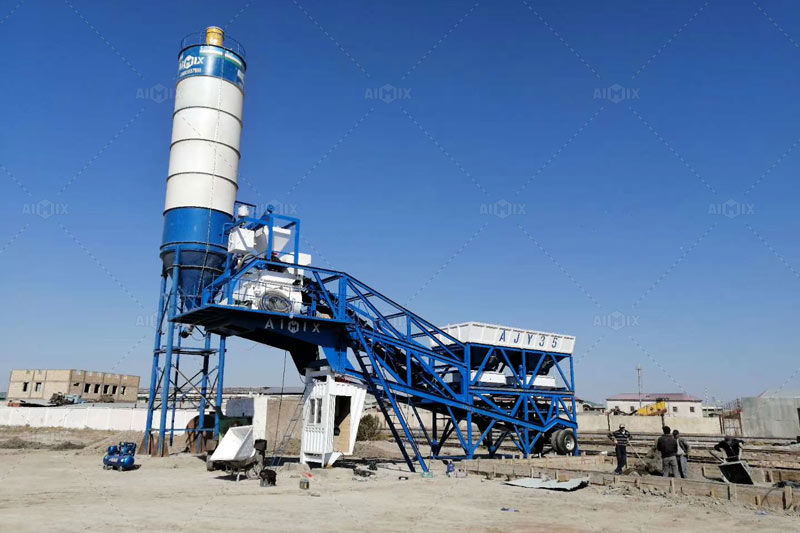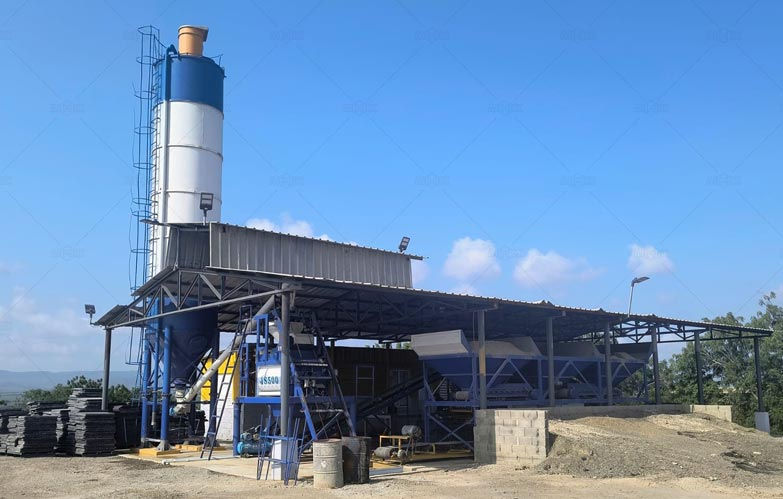The Price Of A Concrete Batching Plant Is Determined Not By The Manufacturer, But By These Five Major Costs
- Aimix maquina

- 29 jul 2025
- 3 Min. de lectura
In the construction industry, it’s easy to assume that the concrete batching plant manufacturer has full control over pricing. However, this is a misconception. While manufacturing quality and brand influence the price to some extent, the final cost is shaped far more by five fundamental cost factors. These hidden or often overlooked costs affect both initial investment and long-term ROI — no matter whether you are buying a portable concrete batching plant, a ready mix concrete plant, or a complete custom system.
Understanding these key cost drivers is crucial for contractors, plant owners, and decision-makers who want to make informed choices and avoid surprise expenses.

Initial Equipment Configuration and Production Capacity
One of the most significant cost determinants is the size and configuration of the equipment itself. Concrete plants(Planta de concreto en venta) are not one-size-fits-all solutions. From mini concrete plants to large ready mix concrete plants, each configuration involves varying levels of investment.
The number and size of mixers, storage silos, aggregate hoppers, conveyors, and control systems will heavily impact the base price. For instance, a portable concrete batching plant designed for small-scale urban jobs will cost much less upfront than a large-scale plant designed to serve an entire metropolitan construction market.
Buyers often overlook the importance of tailoring plant specifications to actual production demands. Oversized or underutilized equipment leads to inefficient capital allocation and affects ROI.
Site Preparation and Installation Costs
The physical installation of a concrete plant is more than just delivery and assembly. Site preparation — including leveling, foundation work, utility connections, drainage, and safety zoning — can represent up to 15–25% of the total project cost, depending on location and terrain.
In remote areas or developing countries like certain regions in South America, where infrastructure is limited, this cost can skyrocket. For example, a concrete plant for sale in Bolivia may seem affordable at first glance, but if it's installed in a mountainous or remote site, the groundwork alone could be a major expense.
Understanding installation complexities helps businesses allocate budget appropriately and negotiate services from plant providers more effectively.
Labor and Training Expenses
Another hidden cost comes from operational readiness. While some suppliers offer training and support, others require plant operators to be independently trained. Highly automated ready mix concrete plants(planta de hormigon elaborado) can reduce the number of workers needed, but they may require more technically skilled staff — increasing labor costs.
Training staff on batching software, safety compliance, routine maintenance, and quality control procedures may involve external consultants or travel to the supplier’s headquarters. These costs, while not always considered in the plant’s base price, affect total investment.
A poorly trained team will also drive long-term losses through inefficiencies, waste, and higher repair rates.
Maintenance, Wear Parts, and Operational Efficiency
The lifetime cost of owning a concrete batching plant is tied closely to its maintenance requirements and spare parts. Plants with poor design or limited aftermarket support may seem affordable upfront, but the cost of frequent wear-part replacements and technical breakdowns adds up quickly.
Choosing a reliable concrete plant for sale means more than selecting based on price. Look at supplier track record, parts availability, and whether the system is designed for easy maintenance access. Some brands offer modular wear components or predictive diagnostics that help reduce downtime and lower maintenance costs.
Plants that consume too much energy, water, or cement due to outdated technology will also result in higher operational costs over time.

Compliance and Environmental Considerations
With increasing global attention on environmental impact, regulatory compliance now plays a significant role in total plant cost. Dust collection systems, wastewater treatment, noise control, and emissions monitoring are often required by local environmental regulations — especially for portable concrete batching plants(planta dosificadora de concreto portatil) operating near urban centers.
Meeting these regulations might require additional investments in filters, recycling systems, or enclosures. Non-compliance can lead to heavy fines or project shutdowns, making it a risk no business can afford to ignore.
In regions like Latin America, where environmental awareness is rising and legislation is evolving, staying ahead of compliance requirements adds a layer of cost — but also of long-term stability and community trust.
Conclusion: Look Beyond the Sticker Price
When evaluating the price of a concrete batching plant, it’s not just the manufacturer's number on the quote that matters. The real investment lies in how well the equipment is matched to your needs, the cost of setting it up and running it efficiently, and the long-term expenses of keeping it compliant and productive.
Whether you’re considering a portable concrete batching plant for flexible jobsite use or a ready mix concrete plant for centralized operations, understanding these five major cost drivers will help you make smarter decisions and avoid costly surprises.
In today’s competitive market, being informed is your greatest asset. If you’re looking for a tailored concrete plant for sale, take these factors into account to find the solution that offers the best value over its full lifecycle.



Comentarios